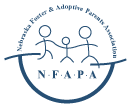Youth Mental Health First Aid
A young person you know could be experiencing
a mental health challenge or crisis.
You can help them.
You are more likely to encounter someone - friend, family member, student, neighbor, or member of the community - in an emotional or mental crisis than someone having a heart attack. Youth Mental Health First Aid teaches a 5-step action plan to offer initial help to young people showing signs of a mental illness or crisis, and connect them with the appropriate professional, peer, social, or self help care.
Anyone can take the 8-hour Youth Mental Health First Aid course, but it is ideally designed for adults who work with young people, ages 12-18 - teachers, coaches, leaders of faith communities, social workers, and other caring citizens.
Sometimes, the best first aid is you.
Take the course, save a life, strengthen your community
Mental Health First Aid is listed in the Substance Abuse and Mental Health Services Administration's National Registry of Evidence-based Programs and Practices. Studies show that individuals trained in the program increase their knowledge of signs, symptoms, and risk factors of mental illnesses and addictions; can identify multiple types of professional and self-help resources for individuals with a mental illness or addition; increase their confidence in and likelihood to help an individual in distress; and show reduced social distance to individuals with mental illnesses.
3 Reasons to become a Mental Health First Aider
To be prepared: just as you learn CPR, learn how to help in a mental health crisis.
You care: be there for a friend, family member, or colleague.
You can help: people with mental illnesses often suffer alone.
Learning Objectives
Participants will:
Recognize the potential risk factors and warning signs for a range of mental health concerns.
Obtain information on: depression, anxiety, trauma, psychosis and psychotic disorders, substance use disorders, and self-injury.
Use a 5-step action plan to help an individual in crisis connect with appropriate professional help.
Interpret the prevalence of various mental health disorders in the U.S. and the need for reduced negative attitudes in their communities.
Apply knowledge of the evidence-based professional, peer, social, and self-help resources available to help someone with a mental health problem treat and manage the problem and achieve recovery.



